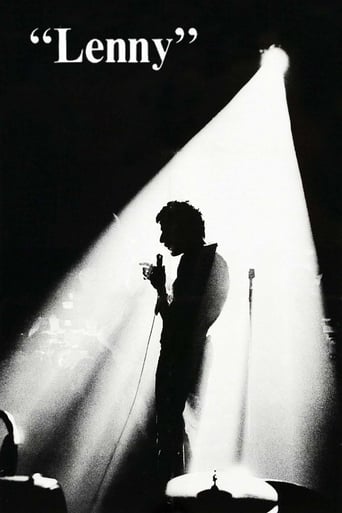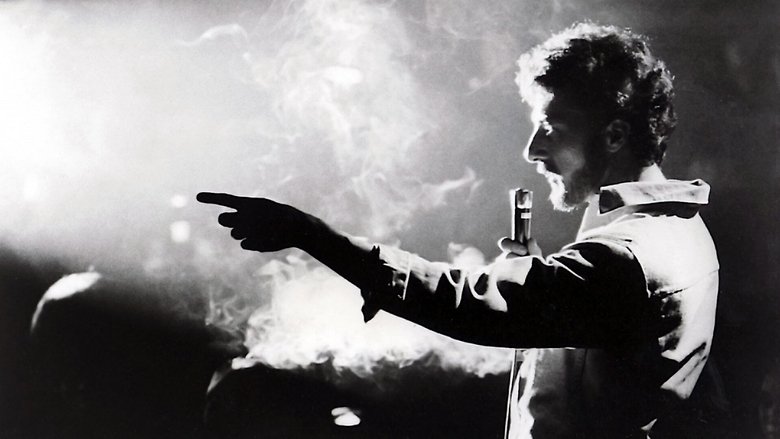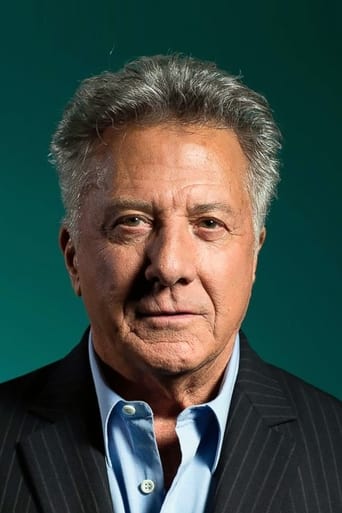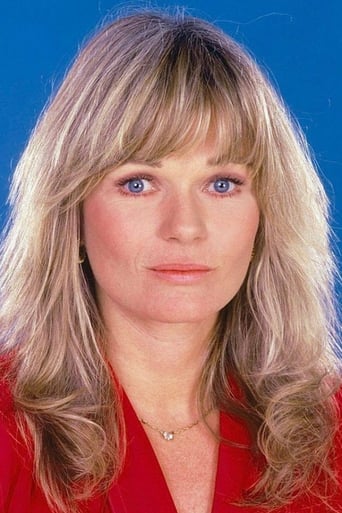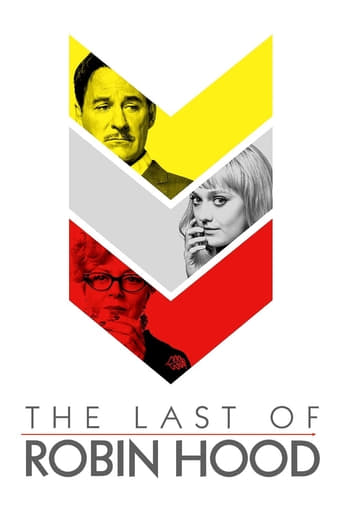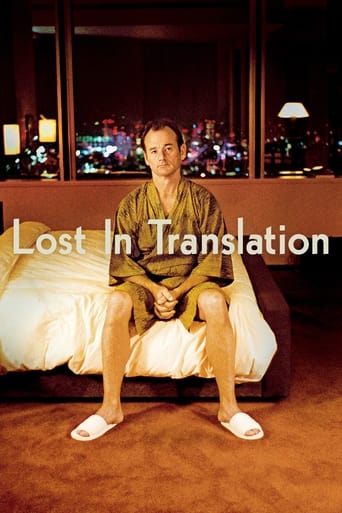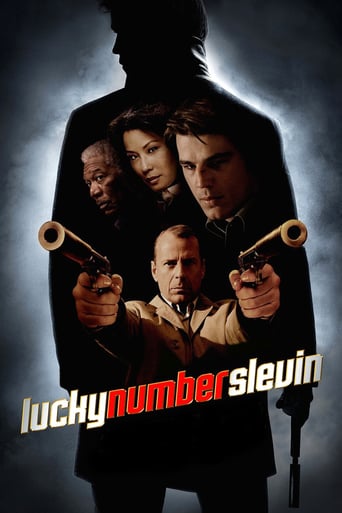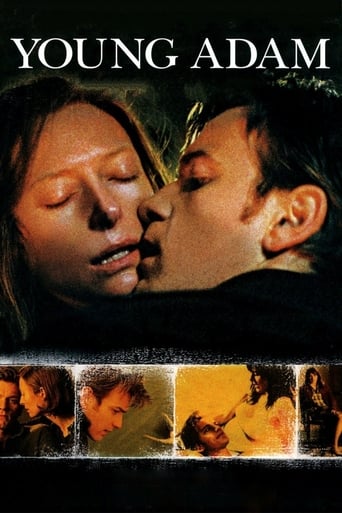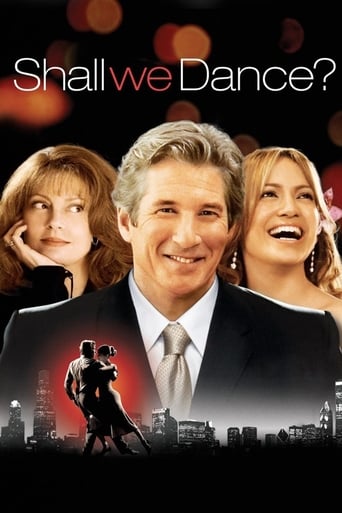Lenny (1974)
The story of acerbic 1960s comic Lenny Bruce, whose groundbreaking, no-holds-barred style and social commentary was often deemed by the establishment as too obscene for the public.
Watch Trailer
Cast
Similar titles
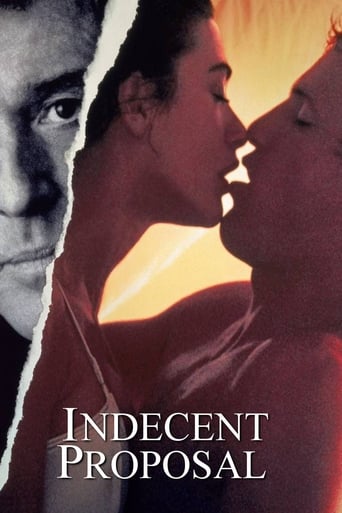
Reviews
Please don't spend money on this.
Better than most people think
A Disappointing Continuation
The plot isn't so bad, but the pace of storytelling is too slow which makes people bored. Certain moments are so obvious and unnecessary for the main plot. I would've fast-forwarded those moments if it was an online streaming. The ending looks like implying a sequel, not sure if this movie will get one
Bob Fosse's follow-up of CABARET (1972), a faux-interview style, monochromatic biography about Lenny Bruce (1925-1966), an American stand-up comedian, who is famed for his anti- Establishment stance and unswerving endeavor to mock and expose hypocrisy in American society, which also causes his short-lived life beset with trials for obscenity, and he was found dead by a morphine overdose, a common and still rampant cop-out for gone-too-gone showbiz personages.Through the snippets of interviews with Lenny's ex-wife Honey (Perrine), a former showgirl, his agent Artie (Beck) and his mother Sally (Miner), recollecting their memories about him, the film interposes the fragments of Lenny's slice of life: backstage, mostly his tempestuous relationship with Honey and on stage, his performances in various dim-lit dives. Meanwhile, Fosse's dedicated fly-on-the-wall technique faithfully re-creates the hazy, druggy and decadent atmosphere of the beat generation, Lenny and Honey's sexual liberation experiment (Lenny has affairs every now and then, whereas Honey's lesbian tendency is vaguely one of the reason of their break-up), their lack of restraint on drug abuse (from marijuana to heroin), and not to mention modern jazz surplus.Fosse's unconventional approach vastly stimulates the narrative poignancy, the film is based on screenwriter Julian Barry's own play, it unfolds chronologically nevertheless, these assorted fragments reveal many a key moment of Lenny and Honey's life, often with a preempted statement from the interviewees, which works greatly to clarify the story-line and dampen the time-jump caprice, which is an inherent defect in the biopic genre.Lenny's jokes, viewed by today's standard, is quite common or garden if one is familiar with the current climate of American stand-up scene, but at his time, he is a bona fide pioneer, his courage to defy the puritanical moral repression and the pandemic hypocrisy is inspiring, which makes his personal tragedy more harrowing simply because he couldn't live to receive the pardon he would receive posthumously in 2003.This is Dustin Hoffman's best performance, a career-defining feat, he not only superbly emulates a real-life character to a fault, the overlong one-take of him doing Lenny's scathing and moving final act in a raincoat is simply a cinematic master stroke. Then, in the final scenes of defending himself in the court, Hoffman proves that he is the crème de la crème in bringing about pathos and other emotions.Valerie Perrine, is pretty awesome too, evinces a naturalistic honesty during the interview sequences, and in the narrative, her portrayal of a showgirl-stripper-bimbo combo rings effectively true. The film reaped altogether 6 Oscar nominations, a top-tier player, for Hoffman, Perrine, Fosse, Barry and Surtees' outstanding cinematography and BEST PICTURE, but sadly won none of them, we all have our soft spots for unlucky also-rans, especially something is of that caliber, it does raise one's esteem for Bob Fosse and his troupe, kudos to them!
Lenny Bruce remains a figure of controversy even today. Some see him as a harbinger of things to come, the ancestor of comedians like Andrew Dice Clay or even the Animal House fraternity of comic actors. Some see him as a rather self indulgent sort who got gratification out of writing on bathroom walls. Whatever he was he probably never deserved the kind of attention he got from law enforcement. But that's always a problem, they never know when to just ignore. As for Bruce he certainly never hit prime time when he was alive.But his character was the subject of a fascinating biographical film just simply entitled Lenny. And he was lucky in that he got an actor as good as Dustin Hoffman to play him. It got Hoffman one of his several nominations for Best Actor. Hoffman was so good that he certainly has a second career as a blue comedian if the acting gig goes south.Lenny was also the breakout performance vehicle for Valerie Perrine in the role of Lenny Bruce's drug addicted wife. Perrine got an Oscar nomination in the Best Supporting Actress category. Down the cast list is Gary Morton, best known as Lucille Ball's second husband and he plays an established comedian based on Milton Berle.Berle in real life could work blue if had to and did on occasions when the all seeing public eye wasn't necessarily tuned in. I remember that Buddy Hackett who was one of the funniest men that ever lived in club dates was positively filthy. But you paid to see him perform live at some nightclub for that, you sure didn't see him in The Music Man doing his nightclub act. Or on the Ed Sullivan Show.Lenny Bruce never made those distinctions between Ed Sullivan and some sleazy nightclub. There's no more Ed Sullivan type variety shows. You do now have comedy clubs where Bruce would probably be more than welcome with his material. Lenny Bruce thanks to the film Lenny now has a permanent place in our culture. It's also part of Dustin Hoffman's enduring legacy to film.
I have a friend who strongly recommended I see "Lenny". Now, after seeing the film I understand why he suggested it--Lenny Bruce in this film sounded much like my friend! Both are huge proponents of the First Amendment (as am I) and both felt that words alone are harmless. So, for that I am thankful that I saw the film and now I can see where my friend got his strange sensibilities! As far as the film goes, I STILL feel quite ambivalent about it several hours after finishing it. While I liked the film technically and appreciate that the film does not whitewash the man, it's also a rather unpleasant film about a guy who I am not even sure I care for one way or the other. I appreciate his pushing the limits of free speech, I just didn't think he was funny--and having seen his HORRIBLE film he wrote and acted in during his early career ("Dance Hall Racket") didn't help! I much more appreciated his insights into society but his jokes left me pretty flat. BUT, this is not really the purpose of the film. Even if you don't think he was funny, it's an interesting portrait of a very self-destructive man as well as the times he lived in and it's rather unflinching in its portrayal.By the way, if you do see "Lenny", understand that even today it's a rather adult film--even over three decades later. There is a lot of nudity and the language is understandably rough. So, don't watch it with your mother-in-law or Father Jenkins!
"Lenny" tells the tragic fate of a pioneer and a martyr : the comedian Lenny Bruce whose irreverent courage paved the way to a whole new style of performance : stand-up comedy. Lenny is posthumously regarded as the father of stand-up comedy and this movie directed by Bob Fosse, is a deserved homage to the unsung hero of a shameful fight for freedom of speech. Who else but Bob Fosse, the director who's to entertainment what Hitchcock is to suspense, could have made such a riveting movie about a comic performer ? And who else but Dustin Hoffman could have personified this prodigious comical talent and his heart-breaking fight for dignity in such a haunting performance ?"Lenny" is about entertainment in its most difficult, underestimated but noblest form, comedy. And by noble, it means 'most sincere' because laughs are the most spontaneous emotions, and you can't cheat with them. That's what Romans called "Vis Comica", a gift, a strength, and a power. Lenny had this power and used it to point out and denounce the excesses of American society. He wasn't a clown, or a buffoon but he was a performer who built an ingenious talent to translate any sensitive subject : religion, politics, and society into an acerbic but hilarious social commentary. He epitomized the notion of making laugh and think. His approach was always provocative but never badly intentioned, in other words, he always had a point, something to denounce, but on one condition : it had to make people laugh half-polemical, half-cynical, but always comical. A lot of close-ups on the audience are used in the film, a reminiscence of the same direction used in "Cabaret" : people look bored, upset, thoughtful, smiling, laughing, they're part of the artistic process, as long as they laugh at the end, and applaud, they get Lenny's point and appreciate his comedic talent. Indeed, you can't cheat with laughs.There's something profoundly cathartic in Lenny's humor, a desensitizing effect leading to a bigger tolerance. Lenny didn't even realize how beyond his time, how modern he was. He didn't know he would face a hateful crowd of opponents from an Establishment which could tolerate anything, except the use of profanity and obscenity on stage in a public place. And that's how Lenny became an unintentional barometer of freedom of speech in America. And as an irreverent character who believes in his ideas, he could never censor himself ... not because he wanted to defy the system, but because he was convinced he was defending a right cause. As long as people were genuinely laughing, he couldn't believe his words were considered obscene. His disbelief was sincere and turned his rebellious attitude into a form of political activism that kind of killed the fun, but never the relevance. Lenny's fate, in a tragic irony, is almost religious as he was sacrificed on the altar of intolerance, for his ideas and beliefs. The last shot of him naked, lying on the floor, is indecently shocking, so is the devastation in his voice when he's begging the judge to let him redo his sketch. I'll never forget the way Hoffman breaks his voice, shouting "I didn't hurt anybody" ... this heart-breaking sentence summarizes the whole martyrdom of Lenny Bruce. This film invites us to follow the tragic story of Lenny and understand this obscure part of America's history where the so-called moral society couldn't allow a performer to exercise his right to speak. It also invites us to question our own tolerance and then try to put our beliefs into perspective. Freedom of speech is like a gift from democracy, you can corrupt it by conveying fear, racism and hatred, or you can make people laugh by destroying all the barriers of political correctness and convince them that there's no segregation in words. Lenny's point is that we're all equally laughable, regardless of our cultures, our religions, our social status, life is too serious to be taken seriously. If the content of Lenny's sketches seems harmless now, that doesn't mean that freedom of speech should be taken for granted. If there are still some words that mustn't be said, or ideas that mustn't be expressed, this means the fight is not over yet."Lenny" is built on a tertiary structure. One third of interviews of all the people who knew Lenny : his manager, his mother and his wife, Honey, played in an extraordinary underrated performance by Valerie Perrine. The chemistry between Honey and Lenny was poignant. Those are two persons, imperfect, but so endearing in their mutual love you could see that Lenny wasn't the bitterly cynical type of guy, he knew what love was about, and this love was one of his greatest inspirations. The heart of the film is Lenny's story, his ascension, the pinnacle of his career until the tragic descent into hell, on which he and Honey have a responsibility. Indeed, he and Honey were flawed, and the excesses that governed a big part of their life were not omitted. And this poignant tragicomedy is punctuated by sketches from a late-career Lenny, showing how he turned all these events that enriched his life into hilarious, provocative and insightful comments. It was not a way to make people laugh at him, but with him at all the flaws that make humans worth being mocked. Lenny's sketches relied on his capability of turning everything he touched into laughter, and that's the pure comedic talent.Lenny is about a man ahead of his time, a pioneer for entertainment and a martyr for freedom and dignity, but the deepest truth about Lenny, that makes his death sadder and more obscene lies in the heart of Honey, who, as a heart-breaking conclusion, simply says "He was just so damn funny"
